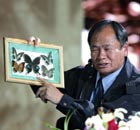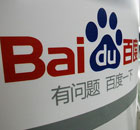Top Stories
Fake papers are rife at universities
By Du Juan (China Daily)
Updated: 2010-03-08 09:24
 |
Large Medium Small |
Strong demand for ghost-written academic papers in the lead-up to university graduation time and revelations that people pay to have scholarly articles published are worrying critics who fear the billion-yuan industry is making it harder than ever to evaluate graduates' abilities.
Li Wei, who works for China Professional Paper Writing Agency, confirmed his company employs about 20 writers who each produce five or six papers a month for university students who should do the work themselves.
The cost of an undergraduate thesis is 700 yuan and the additional cost to have one published is 600 yuan.
Li told METRO they pay writers 3,000 yuan a month to write five 3,000-word papers.
Li claimed his company can also help graduates get papers published in periodicals, something that is often a requirement for graduate students seeking a master's degree or PhD.
"We can help you publish it in Market Modernization, which is a core journal," Li said. "Our price is reasonable. We charge 200 yuan for 1,000 words for publishing. The quality of the paper can be ensured, too."
He said people availing themselves of the publishing service are usually teachers and doctors in key universities and many write the papers themselves, instead of paying others to write them.
Fenghe Rili Paper Writing Agency in Beijing told METRO a 20,000-word master's thesis produced by that agency in English costs 20,000 yuan. Papers written in Chinese are cheaper.
Buyers of the ghost-writing service need only tell the agency the theme, length and due-date and pay an advance of 30 percent before work begins.
An online customer service receptionist reached by METRO said the agency was very busy handling inquiries. The receptionist said both buyers and sellers use fake names to prevent discovery.
Beijing News reported on Jan 6 that Shen Yang, a 35-year-old associate professor at the school of information management at Wuhan University, claimed the annual turnover of the illegal online academic paper trading industry in 2009 was one billion yuan.
Shen said there were about 9,000 legal academic magazines in China. Some 2.4 million papers were published in them in 2008. However, there is demand from people including teachers, college students, researchers and technical staff for more than 11.8 million articles to be published. The strong demand has created the black market in which people pay to have articles published in academic papers and pay to have the papers themselves written on their behalf.
An editor, surnamed Zhai, who works at Market Modernization, said: "We haven't received any tip-offs about fake papers being published. It is impossible for us to confirm each writer's identity since we have an average of 30 articles to examine every day, which is a lot of work.
"As far as I know, there are many teachers at universities who make a living by writing papers for others instead of teaching. The problem is hard to solve if the evaluation system doesn't change."
Ya Qi, a student from Beijing Forestry University, heard about five students in higher grades who bought their thesis papers before they graduated and who were not discovered. Ya's classmate, Zhao Di, said she doesn't approve but will not get involved.
"I have heard some students pay money to get their paper published, but I won't tell on them. It's their personal choice. I don't feel surprised that it is a one-billion-yuan underground business because no one likes writing papers," Zhao said. "It is meaningless and just a technicality before graduation. Most teachers are acquiescent."
But Lao Xiaoming, a college student in Beijing, was angered at the thought that some students were paying others to do all the hard work.
"We should write the thesis by ourselves because it's the result of four year's of study," Lao said. "But I will tolerate the paper trading since it has nothing to do with me. Demand creates markets. College students need to change their attitude to writing papers."







